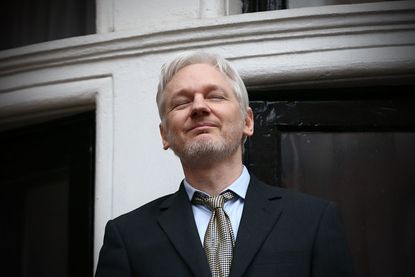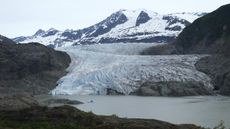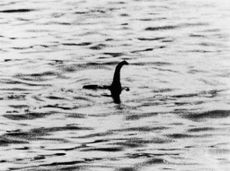Julian Assange's WikiLeaks disclosures typically help Russia, harm West, investigation finds


WikiLeaks is back in the news again, as editor Julian Assange works to insert himself in the U.S. presidential race, and when The New York Times went back and examined WikiLeaks' activities from the past few years, when Assange has been trapped in the Ecuadoran Embassy in London, the reporters discovered a pattern: "Whether by conviction, convenience, or coincidence, WikiLeaks' document releases, along with many of Mr. Assange's statements, have often benefited Russia, at the expense of the West."
The New York Times isn't calling Assange a Russian spy, more of a useful tool. The "emerging consensus" among U.S. officials is that "Assange and WikiLeaks probably have no direct ties to Russian intelligence services," The Times says, but that "Moscow knew it had a sympathetic outlet in WikiLeaks, where intermediaries could drop pilfered documents in the group's anonymized digital inbox." The newspaper doesn't have a smoking gun, but notes a lot of well-timed leaks on trade deals, U.S. classified secrets, and statements supporting Moscow that harmed U.S. interests or transparency and helped Russian President Vladimir Putin.
Assange told The New York Times on Wednesday there's "no concrete evidence" that WikiLeaks gets its leaks from intelligence agencies, though he would gladly accept such material, and said that there's little point in expending resources on Russia, which he called a "bit player on the world stage" and a punching bag. "Every man and his dog is criticizing Russia," Assange said. "It's a bit boring, isn't it?"
Subscribe to The Week
Escape your echo chamber. Get the facts behind the news, plus analysis from multiple perspectives.

Sign up for The Week's Free Newsletters
From our morning news briefing to a weekly Good News Newsletter, get the best of The Week delivered directly to your inbox.
From our morning news briefing to a weekly Good News Newsletter, get the best of The Week delivered directly to your inbox.
Assange's apparent pro-Russia tilt — increasingly pronounced since he sought asylum in the cramped embassy four years ago, fearful that if he is arrested in Europe, he will be extradited to the U.S. — has split his supporters. "He views everything through the prism of how he's treated," one former WikiLeaks collaborator told The Times. "America and Hillary Clinton have caused him trouble, and Russia never has."
Glenn Greenwald, a transparency activist who helped with the Edward Snowden leak, told The New York Times that "on balance WikiLeaks is a force for good," but that "it's often hard for me to separate my personal views of Julian with my views of WikiLeaks." Greenwald is also skeptical that Assange has damaging information on Hillary Clinton, despite his threats. "Julian loves misinformation; it's his passion," he said. "He'd likely say this just to make the Clintons uncomfortable." Read more about Assange and Russia at The New York Times.
Sign up for Today's Best Articles in your inbox
A free daily email with the biggest news stories of the day – and the best features from TheWeek.com
Peter has worked as a news and culture writer and editor at The Week since the site's launch in 2008. He covers politics, world affairs, religion and cultural currents. His journalism career began as a copy editor at a financial newswire and has included editorial positions at The New York Times Magazine, Facts on File, and Oregon State University.
-
 Nobody seems surprised Wagner's Prigozhin died under suspicious circumstances
Nobody seems surprised Wagner's Prigozhin died under suspicious circumstancesSpeed Read
By Peter Weber Published
-
 Western mountain climbers allegedly left Pakistani porter to die on K2
Western mountain climbers allegedly left Pakistani porter to die on K2Speed Read
By Justin Klawans Published
-
 'Circular saw blades' divide controversial Rio Grande buoys installed by Texas governor
'Circular saw blades' divide controversial Rio Grande buoys installed by Texas governorSpeed Read
By Peter Weber Published
-
 Los Angeles city workers stage 1-day walkout over labor conditions
Los Angeles city workers stage 1-day walkout over labor conditionsSpeed Read
By Justin Klawans Published
-
 Mega Millions jackpot climbs to an estimated $1.55 billion
Mega Millions jackpot climbs to an estimated $1.55 billionSpeed Read
By Catherine Garcia Published
-
 Bangladesh dealing with worst dengue fever outbreak on record
Bangladesh dealing with worst dengue fever outbreak on recordSpeed Read
By Catherine Garcia Published
-
 Glacial outburst flooding in Juneau destroys homes
Glacial outburst flooding in Juneau destroys homesSpeed Read
By Catherine Garcia Published
-
 Scotland seeking 'monster hunters' to search for fabled Loch Ness creature
Scotland seeking 'monster hunters' to search for fabled Loch Ness creatureSpeed Read
By Justin Klawans Published


